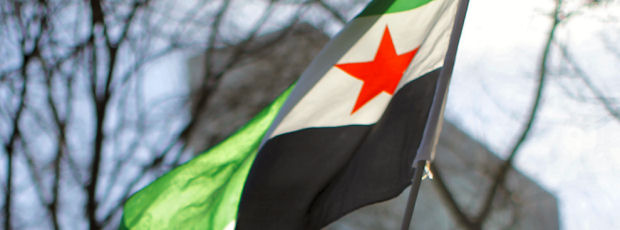What does the UN’s Syria resolution tell us?
A draft UN resolution on Syria aims to ensure that President Bashar al-Assad relinquishes his grip on power. But what else does the document say? Jonathan Rugman reads between the lines.


Phrases from page 4 and item 3 of the draft UN resolution recognise that Syrian government forces are not alone responsible. It is important that the resolution does not place 100 per cent of blame at President Assad‘s door. The Russians have sought to cast government use of force as a legitimate response to an armed uprising.
There are repeated references to Arab League throughout – very important to persuade Russia (quietly backed by China and India) that this resolution is not a western plot but an Arab initiative calling on the security council to take action in the Arabs’ own back yard. Arab states, having done all they could up to this point, are now referring the matter to New York.

A reference to Iran, on which Arab and western states largely share a policy of containment. Also inferred as a reference to Russia, which makes billions in arms sales to Syria.

Russians like this language as they are very worried about a precedent here.
With nations calling for the president to step down, will they one day demand the same of Vladimir Putin? They saw Gaddafi toppled last year, as well as the departure of the eladers of Egypt, Tunisia and, most recently, Yemen. Regime change in Iraq, of course, is the most blatant example of western interference in recent years.

Reference to Nato/Arab military action in Libya, which the Russians don’t want as a precedent. They fear any resolution on Syria could open the gates to military action there, as per Libya last year.
What this UN resolution debate points to is the difficulty the world’s policeman has in drawing the line to the world’s satisfaction. The question is how the UN security council can confront nations on how they treat their own civilians, when this is bound to amount to some level of interference.

Everyone shares the fear that without this unity, Syria will descend into fully fledged civil war involving Sunni Arabs, Kurds and Alawites.

The toughest demand in the whole resolution. Foreign powers are not asking but demanding Assad step down. Russia and China vetoed another resolution last October. It is a very big question as to whether they could ever sanction this.

This won’t help bring the Russians round, given that they are widely accused of rigging last December’s parliamentary vote in Russia itself. Ironically, protests against the Putin regime are due to take place on Saturday – just hours after a possible UN security council vote condemning Syria.